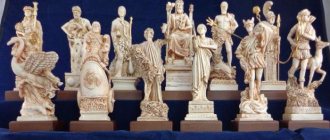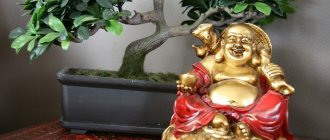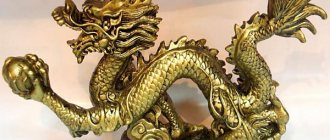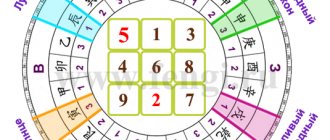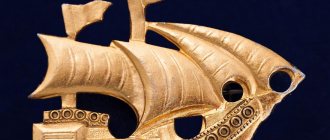Who is the Greek god of wealth? He is not the only one among them. Ancient Greek mythology amazes with its versatility. It combines the morality, ethical principles and culture of many European nations. Mythology is distinguished by special thinking, the study of the world and man's place in it. For help in all their endeavors, the ancient Greeks turned to powerful deities who guided them on the right path and gave them good luck in everything. Who are the Greek gods of wealth? These are the ones that will be discussed in the article.
Attitudes to wealth in Ancient Greece
In Ancient Greece, they were skeptical about wealth: it was believed that making money was much easier than earning a good name and fame. In ancient Greek mythology, there are often cases when a poor person from the people prevailed over the rich aristocracy, which had no authority and respect among the Greeks. Before Greece became an economically developed state, priority was given to intangible areas: medicine, philosophy, science and sports.
Later, agriculture, crafts and trade began to actively develop. It was then that the ancient Greek gods of wealth, fertility and trade came to the fore of the pantheon: Demeter, Mercury, Hermes and Plutos.
At first, the ancient Greeks grew grain crops, but with the development of trade this became an unprofitable occupation, and enterprising people began to trade in the crops that Greece is rich in - olive oil and grapes. Along with the development of trade, the Greek gods of money began to appear.
In parallel, the slave system developed: slaves were the subject of trade, their labor was used in crafts.
The Greek god of wealth is Plutos. With its advent, the concept of “money” becomes popular. They were treated with respect and tried to save every coin. Each policy mined its own money, and trade extended far beyond the borders of Greece. The traveling intermediaries were traveling colonies, traces of which were found in the Black Sea, not far from present-day Sevastopol, Kerch and Feodosia.
With the development of the economy, resellers appeared who changed money among policies. They made bets on interest, gave loans and accepted deposits. Bankers collected huge sums of money, and they had the opportunity to make money from resales.
As stated earlier, the first goddess associated with wealth was Demeter.
Demeter
Demeter is one of the most influential and respected goddesses in Greece. She is the goddess of wealth and fertility. Celebrations and honors were held in her honor throughout Greece, especially during the sowing and harvest months. It is believed that without the help and will of Demeter there will be no harvest: farmers turned to her for help and blessings on their crops, and women asked for fertility and the opportunity to bear a child. An interesting feature is that Homer paid very little attention to this goddess: she almost always remained in the shadow of even less powerful gods. Based on this, we can conclude that in the early years other methods of enrichment prevailed in Greece, and agriculture came to the fore much later, displacing livestock breeding. The location of the goddess promised the farmer favorable weather conditions and a rich harvest.
According to legends, Demeter was the first to plow the earth and sow grains in it. The Greeks who witnessed this were sure that the grains would spoil in the ground, but after some time the harvest sprouted. Demeter taught people to care for crops and grow grain, and later gave them other crops.
Demeter and Persephone - ancient Greek gods of wealth and fertility
Persephone took over her mother's baton and became the goddess of fertility and agriculture. Demeter loved her only golden-haired daughter very much and passed on her wisdom to her. She reciprocated her mother's feelings.
One day, an incredible grief happened that crushed Demeter: her daughter was kidnapped. This was done by the god of the underworld Hades, brother of Demeter. Permission for this was given by Zeus himself, who promised his brother his daughter as a wife.
Unsuspecting Persephone was walking with her friends through green meadows, and then she was kidnapped by her future husband. He hid the girl deep underground, and the grief-stricken mother wandered the lands, looking for her. Demeter did not eat or drink for several months, the productive pastures dried up, and her daughter still did not appear. Zeus told Demeter about the agreement, but she refused to share her beloved daughter with her brother, whom she hated since childhood.
Zeus turned to Hades with a request to return his daughter to her mother, but he agreed with one condition: Persephone would spend two-thirds of the year with her fertility mother, and for one-third of the year she would descend into the underworld, having first swallowed a pomegranate seed. In this way, the ancient Greeks explained the change of seasons and crops.
Demeter and Triptolemus
Triptolemus is also the god of wealth among the ancient Greeks. One day, the goddess of fertility decided to give a gift to the son of King Eleusis - Triptolemus. She taught him to plow the land, cultivate it and gave him grains for sowing. Triptolemus plowed the fertile lands of paradise three times and threw grains of wheat into them.
After some time, the earth brought a rich harvest, which Demeter herself blessed. She gave Triptolemus a handful of grain and a magical chariot that could move across the sky. She asked her mentor to go all over the world, teaching people about agriculture and distributing fertile grains. He followed the instructions of the goddess and set out on his way.
Everywhere the god of wealth visited (in Greek mythology this is how it is described) on his chariot, there were fields with rich harvests. Until he arrived in Scythia, to the king of Linha. The king decided to take all the grains and glory of Triptolemus for himself, killing him in his sleep. Demeter could not allow the death of her assistant and came to his aid, turning Linkh into a lynx. He fled into the forest, and soon left Scythia altogether, and the god of money and wealth among the Greeks - Triptolemus - continued his journey, teaching people agriculture and husbandry.
Dy in the pantheon of Slavic Gods
The Slavic God Dy was created by Rod among the first Gods.
He is the brother of Viy, the Guardian of Souls in the world of Navi. Dyy was created by the bright God of Heaven. At that time, Dyi was married to Mother Raw Earth. He irrigated the crops with rain, after which people received a rich harvest. The marriage of God Dyya and the Mother Goddess of the Raw Earth is an example of the union of heaven and earth, thanks to which all living things are born. Some myths indicate the children of Dyya and the Mother of the Damp Earth: Churila, Indra and Diva. We believe that Diva Dodola is most likely the daughter of God Dyya and the Moon Goddess Divia. When Dyi became the God of Wealth, Diva Dodola took over some of his former responsibilities and sent heavenly moisture to the earth.
Find out more about God Dye:
Books of Slavic mythology
Plutos
The ancient Greek god of wealth Plutos is the son of Demeter and the Titan Iasion. According to myths, lovers Demeter and Iasion gave in to temptation on the island of Crete and conceived Plutos in a thrice-plowed field. Seeing the couple in love, Zeus flew into a rage and incinerated Plutos' father with lightning. The goddesses of peace and chance, Eirene and Tyche, were involved in raising the boy.
It is believed that Plutos, the god of wealth, was blind and gave gifts to people arbitrarily, without paying attention to their external characteristics or status in society. Those gifted by Plutos received unprecedented material benefits. Jupiter blinded the god, who was afraid that Plutos would be unfair and biased in the distribution of wealth. Therefore, luck in material terms can overtake both bad and good people.
In art, the god of wealth is depicted as a baby holding a cornucopia in his hands. Most often, the baby is held in the arms of either the goddess of fortune or the goddess of peace.
Most often, the name Plutos is associated with Demeter and Persephone. He accompanies and helps everyone who is favored by the goddess of fertility.
The Greek god of wealth Plutos introduced the concept of “goods”. People began to take care of material wealth: save money and increase it. Previously, the Greeks did not attach much importance to material values; they were not concerned about the improvement and standard of living.
Mantra of wealth and prosperity - practice of Sadhana Lakshmi
To never live in want, you must constantly be in the flow of the goddess of prosperity. Most people believe that a one-time appeal is enough. It should not be surprising that with this approach to the practice of mantras they do not achieve any success.
Lakshmi's mantra for money and wealth is repeated many times throughout life. The practice of Sadhana Lakshmi was transmitted by the disciple of the sage Rishi Vasishtha for regular use. On Friday evening, you need to take a bath or shower, sit in front of the image of the goddess facing east and chant the mantra:
Then another mantra should be chanted a special number of times using the rosary: repeat one circle of rosary of one hundred and eight beads 21 times. That is, one round of mantra repetition is equal to 108 utterances. There should be exactly 21 such circles.
The practice of Sadhana Lakshmi relieves a person from want, grief and everyday difficulties.
Comedy "Plutos"
The comedy was written and staged by the ancient Greek comedian Aristophanes. In it, the Greek god of wealth Plutos is depicted as a blind old man who is unable to properly distribute wealth. He gives gifts to dishonest and vile people, because of which he himself loses all his wealth.
On his way, Plutos comes across a resident of Athens who restores his sight. The God of Wealth sees again, and this helps him to fairly reward people according to their merits. Plutos becomes rich again and regains the respect of the people.
Plutocracy
One of the political regimes was named after the god of wealth - plutocracy. The term was introduced at the end of the 19th century and characterizes a form of government in which government decisions are made not by the will of the majority (the people), but by a small group of oligarchic clans located in the shadows. Such a state is ruled primarily by money, and the legitimately elected government is completely subordinate to wealthy clans.
Plutos and Pluto: ancient Greek gods of money, wealth and abundance
At some point in ancient Greek mythology, two deities were identified - Pluto (god of the underworld) and Plutos (god of wealth and abundance). This is explained by the fact that Hades has countless riches stored deep underground. There are also many myths that unite these gods.
According to more ancient myths, Hades is the brother of Plutos' mother, Demeter, and is therefore his uncle. But later myths claimed that this was one deity. This is confirmed by the consonance of their names: Plutos and Pluto.
Deity Image
In traditional depictions, Kubera has two arms, three legs and one eye . There is a legend according to which he lost his eye because he spied on Shiva during his love affairs with his wife. This god has a huge, rounded belly, symbolizing a well-fed, rich life. But in some scriptures he is considered a very ugly god.
legends about Kubera both in Indian mythology and in Tibetan Buddhism (Dzambhala), Japanese culture (Bishyamon) and Chinese mythology (Do Wen Tian).
In Sanskrit his name is Vashravana. Reference! In Indian scriptures Kubera is called Vittesvara. Jainism mentions him as Sarkwanubhuti. Buddhist monks call him Vaishravana. Tibetan culture speaks of him as Dzambhal, Namsarai (a deity who patronized wealth and protected religion). Mongolian and Buryat legends call it Namsre.
Cornucopia
This is a symbol of endless wealth, originating from the myths of Ancient Greece. The horn belongs to the goat Amalthea, who fed little Zeus, who was hiding from his father Kronos on the island of Crete, with her milk.
There is another legend about its origin. Hercules twisted the horn of the river god during the battle. He showed mercy and returned the horn to its owner. He did not remain in debt and gave the world a cornucopia filled with riches.
In art, this symbol is depicted upside down, through a hole in which various fruits are ejected: fruits and vegetables, sometimes coins. Most often, the cornucopia is held in the hands of the Greek god of wealth - Plutos. Some sculptures with this symbol depict the goddess of justice - Themis.
In Ancient Greece, coins were minted with the image of a cornucopia on the reverse side. This was supposed to attract new money and help retain their property.
In the Middle Ages, the cornucopia was transformed into the Holy Grail, which is the source of eternal life and wealth.
For good luck in your career
Lakshmi helps people with pure thoughts achieve social recognition and a high position in society. However, if a person’s heart becomes callous and deceitful, the luck bestowed by the goddess will leave him forever.
For career growth, you should practice a special Gayatri mantra (at least 108 repetitions at a time) for 36 days in a row, starting from the time of the waxing of the moon:
Don't forget that one of the main aspects of the goddess is mercy and compassion. If a person is hard-hearted and does not intend to improve, it will be impossible to achieve contact with the goddess.
Mercury (Hermes)
Mercury is the god of wealth, trade and the patron of thieves. He is depicted wearing a helmet and sandals with wings, a conciliatory staff and a bag filled with gold coins.
The Greek god of wealth, Mercury, was borrowed by the Romans from the Greeks after their conquest. In Ancient Greece, Mercury was called Hermes. Originally it was the god of cattle and cattle breeding. During the time of Homer, he became a mediator between the gods. It was then that he received wings on his sandals and helmet to move quickly while performing various tasks. He also had a reconciliation stick made of gold, with its help he resolved conflicts and disputes.
With the development of agriculture, he became the patron saint of bread and grain, and later, when market relations were actively developing, he became the god of trade and the patron saint of merchants. People turned to him for help in out-purchases, trade transactions and exchanges of goods.
It is believed that it was Hermes, the Greek god of wealth, who gave the Greeks numbers and taught them how to count. Before this, people paid by eye, without paying much attention to the amount of money.
Even later, Hermes became the patron saint of thieves: he was depicted with a wallet in his hands or with his hands tied next to Apollo - a hint of theft.
When the Romans conquered Greece, they borrowed the god Hermes, renaming him Mercury. For them it was the god of prosperity, enrichment, trade and profit.
Nowadays, the image of Mercury can be found on the emblems of banks, large trading companies and auction exchanges.
Lakshmi, Ganesha and Kubera
These three Vedic deities represent luck, prosperity and wealth. However, their functions are different. The Hindu god Ganesha is considered the patron of wisdom and helps to remove any obstacles on the path to success; Lakshmi opens the door to prosperity. Kubera is responsible for cash, that is, he is more suited to the function of treasurer. In the Vedic tradition, these deities may be mentioned together. By practicing the following mantra, you can achieve incredible success in your business or career:
While practicing the mantra, you can put a banknote in front of you - it will become a money talisman. You cannot spend this bill. After reading the mantra, blow on the bill three times to charge it with the energy of success and attracting money. Each time, the bill will be filled with vibrations of abundance and prosperity and over time will become a powerful talisman of personal monetary luck.
You should never ask Lakshmi, Ganesha and Kubera to deal with your business competitors. It is not the function of these deities to punish anyone. Just ask to remove obstacles, clear the path to prosperity, and with love in your heart thank you for your help.
King Midas and gold
In Ancient Greek mythology, Midas was the king of Phrygia. From childhood he knew that he would be a rich and influential man: all the signs of fate pointed him to this. Even small ants brought grains and put them in his mouth.
One day, Silenus, the teacher of Dionysus, came into the possession of Midas. He got lost in the forest when Dionysus was leading his army through Phrygia. King Midas saw this and poured wine into the streams passing through the forest. Silenus drank water mixed with wine and immediately became drunk. Unable to get out of the forest, he wandered through it for a long time until Midas met him and took him to Dionysus.
Happy Dionysus invited Midas to make any wish. He wished for a “golden touch”: that everything his hand touched would become golden.
Dionysus obeyed the king's wishes, and he arranged a magnificent celebration, setting the table with various drinks and dishes. But at the table he realized that he would die of thirst and hunger, because food and drinks in his hands became gold.
The king rushed to Dionysus with a request to deprive him of the gift, and he ordered him to bathe in the Pactolus River. Midas lost his ability to turn everything into gold, and after that the river became golden.
Nowadays, the expression “Midas touch” means the ability to quickly earn money out of thin air and be successful in all endeavors.
Kairos
Kairos was a revered deity among the ancient Greeks. He was the patron of chance - a happy moment that can give good luck and prosperity if you grab it in time. He is always somewhere close to Chronos, the patron of the sequence of time. But unlike Chronos, Kratos is very difficult to meet and catch: he appears only for a second and instantly disappears.
The Greeks believed that Kairos could show them a happy moment in which luck would smile on them and the gods would be supportive in all their endeavors.
God moves silently and quickly among mere mortals; meeting him face to face is a great rarity and luck. At this moment, the main thing is not to get confused, grab Kairos by the long forelock and ask fate for everything you want. Missing a chance is a great sin, since it is given only once in a lifetime.
Kairos is depicted as a young man with wings on his back and wearing sandals. He has a long golden curl on his head, by which you can try to grab him. Kairos holds scales in his hands, which indicates that he is fair and sends good luck to those who work hard and wish for success.
Chapter 8. Wealth earthly and heavenly
A direct continuation of the conversation about mammon is the following section of the Sermon on the Mount, in which Jesus warns against being overprotective:
Therefore I say to you, do not worry about your life, what you will eat or what you will drink, nor about your body, what you will wear. Is not the life more than food, and the body than clothing?
Look at the birds of the air: they neither sow nor reap, nor gather into barns; and your Father in heaven feeds them. Aren't you much better than them?
And which of you, by caring, can add even one cubit to his height?
And why do you care about clothes? Look at the lilies of the field, how they grow: they neither toil nor spin; but I tell you that Solomon in all his glory was not dressed like any of them; But if God clothes the grass of the field, which is here today and tomorrow is thrown into the oven, then God will clothe it more than you, O you of little faith! So do not worry and say, “What shall we eat?” or what to drink? or what to wear?
Because the pagans are looking for all this, and because your Heavenly Father knows that you need all this. Seek first the Kingdom of God and his righteousness, and all these things will be added to you.
So, do not worry about tomorrow, for tomorrow will worry about its own things: enough for each day is its own care.
(Matt. 6:25–34).
The key word in the passage under consideration is the verb μεριμνάω, meaning “to care”, “to worry”, “to fuss”. This verb is used six times in the text, which ensures the compositional integrity of the passage. It is appropriate to recall the use of the same verb in the words addressed by Jesus to the busy woman: Martha! Marfa! you care (μεριμνᾷς) and fuss about many things, but you only need one thing...
(Luke 10:41–42).
The earthly life of a person is described in the passage of the Sermon on the Mount in question using a whole set of repeated words (“soul”, “body”, “eat”, “drink”, “dress”, “seek”, “tomorrow”), while the reality of a different the world is indicated by the expressions “Kingdom of God” and “Your Heavenly Father.” The contrast between the earthly and the heavenly is reinforced with the help of vivid images: birds of the air, lilies of the field, Solomon in all his glory. As a result, the listener (reader) receives a colorful, rich, memorable instruction about life priorities.
Expression: Do not worry about your life, what you will eat or what you will drink.
does not mean that the soul needs food and drink: the word “soul” is used here in the meaning of “life.”
We find a similar usage in the words: whoever wants to save his soul will lose it, but whoever loses his life for My sake will find it
(Matthew 16:25).
The words “soul is not greater than food”
mean that human life is not limited to food and drink; it has other, higher values.
In the Gospel of Matthew, the term “soul” is used 16 times, the term “body” – 14 (of which 7 in the Sermon on the Mount)423. Soul and body is a dichotomy often found in the pages of the New Testament. In many cases, when body and soul are mentioned in pairs, they are contrasted with each other, while the subordinate position of the body in relation to the soul is emphasized. However, in the passage under consideration, body and soul appear as two components of human nature, in relation to which food and clothing occupy a subordinate position.
The central place in the text under consideration is occupied by a comparison of human activity with natural phenomena: hard work and much care are contrasted with the lifestyle of the birds of the air, which are nourished by the Heavenly Father. The beauty of the lilies of the field (poppies) is contrasted with the glory of King Solomon: no human art can compare with the beauty and diversity of God's creatures, including those that people consider weeds, weed out and burn.
The ending of the text summarizes its content. Let us note the use in it of the word κακία, literally meaning “evil”, “malice”. The Slavic translation here is more literal: his anger prevails throughout the day
(Matthew 6:34) (hence the Russian word “topical”, the expression “spite of the day”). Let us also note that a number of early Christian writers have the following version of one of the verses of the passage in question: “Seek great things, and little things will be added to you”424.
We find similar instruction in Luke, but not in the Sermon on the Plain, but in another sermon addressed to the disciples and delivered in the presence of thousands of people (Luke 12:22-31). In Luke, this instruction follows the parable of the rich man who built barns to store his stored grain (Luke 12:16–21). With the exception of the use of the word "ravens" (instead of "birds of the air"), Luke's version is very close in text to the Sermon on the Mount. However, it has a different ending. Instead of a repeated call not to worry about tomorrow, we find here completely different words addressed to the disciples: Do not be afraid, little flock! for it has been your Father's pleasure to give you the kingdom
(Luke 12:32). These words emphasize that the recipient of the instruction is the group of disciples of Jesus - that “little flock” that will later turn into the Church (the term ποίμνιον will be used to designate the flock of a bishop or priest).
In the Sermon on the Mount, the instruction in question follows directly from the conversation about God and mammon. The connecting link is the words therefore I tell you
(Matt. 12:31). However, these words also connect the instruction with the entire previous text of the Sermon on the Mount, starting with the Beatitudes, in which the thesis about the incompatibility of earthly with heavenly things is stated with all decisiveness and the entire scale of earthly values is inverted. Only within the general context of the Sermon on the Mount does this text make sense.
The mention of Solomon is not accidental. Solomon entered the history of the Israeli people not only as a king whose court was distinguished by its special wealth and splendor (1 Sam. 4:21–28; 10:4–5, 21–23). He is also known as the author of the book of Ecclesiastes (Ecclesiastes), which in its mentality is close to the text of the Sermon on the Mount under consideration. The leitmotif of this book, which stands apart in the entire corpus of Old Testament writings, lies in the words with which it begins and ends: Vanity of vanities - all is vanity!
(Eccl. 1:2; 12:8).
The refrains are repeated many times: all is vanity and vexation of spirit
(Eccl. 1:14; 2:11, 17, 26; 4:4, 16; 6:9),
and this is vanity
(Eccl. 2:1, 15, 19) .
One of the themes of the book is human labor. The author of the book describes various activities, but each of them is nothing more than vanity and great evil.
(Eccl. 2:21), or
vanity and evil deed
(Eccl. 4:8), or
vanity and serious illness
(Eccl. 6:2). No matter how hard a person works, he cannot change the course of history or influence the life of nature:
What profit does a man get from all the labors he toils under the sun? A generation passes, and a generation comes, but the earth remains forever. The sun rises, and the sun sets, and hurries to its place where it rises. The wind goes to the south, and goes to the north, spins, spins as it goes, and the wind returns to its circles. All rivers flow into the sea, but the sea does not overflow: to the place from which the rivers flow, they return to flow again. All things are in labor: a person cannot retell everything; The eye will not be satisfied with seeing, nor the ear will be filled with hearing. What has been is what will be; and what has been done will be done, and there is nothing new under the sun... I have seen all the works that are done under the sun, and behold, everything is vanity and vexation of spirit! I saw this care that God gave to the sons of men, so that they would practice
(Eccl. 1:3–11, 14; 3:9–10).
Another theme of the book of Ecclesiastes is wealth, fame, and earthly pleasures. None of this can satiate a person:
I undertook great things: I built myself houses, planted vineyards for myself, built myself gardens and groves and planted all kinds of fruitful trees in them... I collected for myself silver and gold and jewelry from kings and regions; He brought in singers and singers and the delights of the sons of men - various musical instruments. And I became great and rich more than all those who were in Jerusalem before me. Whatever my eyes desired, I did not refuse them, I did not forbid my heart any fun... And I looked back at all my deeds. and behold, all is vanity and vexation of spirit, and there is no benefit from them under the sun!
(Eccl. 2:4–11).
He who loves silver will not be satisfied with silver, and he who loves wealth will not profit from it. And this is vanity! As property multiplies, those who consume it also multiply; and what good is it for the one who owns it: except to look with his own eyes? There is a painful illness that I have seen under the sun: wealth saved by its owner to his detriment. And this wealth perishes from accidents: he gave birth to a son, and he has nothing in his hands. Just as he came out naked from his mother’s womb, so he departs as he came, and will not take anything from his labor that he could carry in his hand... What good does it do him that he worked for the wind?
(Eccl. 5:9–10, 12–15).
A literal reading of the book of Ecclesiastes may lead one to believe that the author of the book promotes laziness and inaction. This, however, is a misleading impression. In another book, inscribed with the name of the same Solomon, we find a denunciation of laziness: Go to the ant, you sluggard, look at his actions, and be wise. He has neither a boss, nor a guardian, nor a master; but he prepares his bread in the summer, gathers his food in the harvest... How long will you sleep, you slothful one? when will you arise from your sleep?
(Prov. 6:6–9) The book of Ecclesiastes also does not at all contain a call for passivity: it only shows that all human labor has a relative, not an absolute value.
Jesus speaks about this, only in different words, in the Sermon on the Mount. A literal reading of the passage in question raises a whole series of questions. How can a person not care about tomorrow at all, not think about food and clothing? Doesn’t simple everyday experience tell us that if a person doesn’t take care of himself, no one will take care of him? Even the birds of the air, although they do not sow or reap, obtain food for themselves and their chicks - shouldn’t a person do the same?
The answer must be sought in the semantic content of the term “care”, which both in the book of Ecclesiastes and in the fragment of the Sermon on the Mount under consideration is used in the meaning of “vanity”, “useless work”. Accordingly, the verb “to care” that Jesus repeatedly used means not just “to work,” but “to worry,” “to fuss.”
There are many similarities between the two texts, Ecclesiastes and the Sermon on the Mount, but there are also very significant differences. The book of Ecclesiastes does not take a person out of the circle of heavy thoughts about the vanity of the earthly world, the works and achievements of man, his wealth and even wisdom. The author of the book does not find an alternative to vanity, and the entire action of the book takes place “under the sun.” The Sermon on the Mount provides a clear alternative and a clear reference point: this is the Kingdom of Heaven. It is in the light of the reality called the Kingdom of Heaven or the Kingdom of God that material wealth loses its significance, as do the works and achievements that a particular person can boast of. They are nothing compared to the greatness of this Kingdom.
As in the Beatitudes, the Kingdom of Heaven is contrasted with the earthly kingdom, symbolized by Solomon in all his glory. Jesus does not forbid a person to work, to take care of food for himself and his children: He warns against enslavement to labor, against turning labor into an end in itself. The Sermon on the Mount is alien to the ideal of a person who is completely immersed in professional interests, selflessly devoting all his strength and health to earthly work without entering the spiritual realms. She paints another ideal: a person living on earth, but not absorbed in the vanity and busyness of earthly affairs, but seeking the Kingdom of God and its righteousness.
This is the similarity between the passage in question from the Sermon on the Mount and what Jesus said about serving wealth. Nothing should enslave a person: neither material well-being, nor concern for tomorrow, who will take care of his own. Jesus Calls to Focus on Today
day and don’t fuss about tomorrow. Let us remember that in the prayer “Our Father” He commands to ask for bread only for today, and not for tomorrow.
It is no coincidence that the word “little faith” is used here. A person can and must work, but he must remember that his work will be beneficial only if he does not forget about God and His Kingdom, which exists in parallel with the earthly kingdom. Faith in God, trust in Him, willingness to submit to His will should dominate a person’s life.
Here again we can recall Solomon. In the Psalter the following words are attributed to him: Unless the Lord builds a house, those who build it labor in vain; If the Lord does not guard the city, the watchman watches in vain
(Ps. 127:1). These words do not mean that the house should not be built and the city should not be protected. They only remind us of the futility and vanity of any labor that is not blessed by God, for which God does not cooperate.
The segment of the Sermon on the Mount under consideration received an original interpretation in S. Kierkegaard’s work “The Lily of the Field and the Bird of the Air.” Seek words
the philosopher interprets it as a call to prayer. To truly pray means to enter into silence, like that of the birds of the air and the lilies of the field:
The bird is silent and waits,
she knows, or rather believes - she believes undoubtedly and firmly that there is a time for everything, so the bird is waiting; but she knows that it is impossible to know the time and day when what will happen will happen, and therefore she is silent. This, of course, will happen at a favorable time, says the bird; however, no, the bird does not say this, it is silent; but her silence is speaking, and her silence says that she believes in it, and because she believes, she is silent and waits. But a moment comes, and the silent bird understands that the moment has come, and takes advantage of it, and is never disappointed. The lily is the same: she is silent and waits. She doesn’t impatiently ask, “When will spring come?” - because he knows that spring will come at a favorable time, and knows that it would be least useful if she were allowed to determine the timing of the seasons; she does not say: “When will it finally rain?”, or “When will there finally be sun?”, or “It’s too rainy now,” or “It’s too hot now”; she does not ask about what summer will be like this year, how long or how short; no, she is silent and waits - she is so simple, but she is never deceived425.
The bird, the philosopher continues, is not free from suffering, but it endures suffering in silence. In this way, she “relieves herself of what makes suffering worse: uncomprehending condolences; from what makes suffering last longer - from many conversations about it; from what makes suffering no longer suffering, but the sin of impatience or sadness.” Lily is also silent: “...even if she stands and suffers, withering, she is silent... she does not know how to pretend, so there is no pretense in the fact that she turns pale, this pallor betrays her real suffering; but, suffering, she is silent”426.
From the bird and the lily, the philosopher concludes, a person must learn to stand before God: “After all, when we are just chatting together, and even more so when there are ten or even more of us, it is so easy to forget that you and I, the two of us or the ten of us, are in front of By God. But Lily, our teacher, is more thoughtful than us. She doesn’t try to talk to you at all, she is silent and with this silence she wants to let you know that you are before God.”427
The existentialist philosopher is essentially talking about the same thing that the authors of biblical books were talking about when they used the expression “walk with God” (Gen. 5:22, 24). This expression has multiple meanings. While emphasizing the righteousness and integrity of man (Gen. 6:9), it at the same time points to the source of all righteousness - God. If a person does not forget about the presence of God, if God comes first for him, if faith in God determines the system of value guidelines, then everything else is naturally built around this core. Earthly acquisitions are attached to a person, but do not possess him: he does not become their slave, because he feels himself a slave of God.
According to the Old Testament view, the reward for faith and righteousness is an abundance of earthly goods. The same idea is present in the Sermon on the Mount, only in a slightly modified form: seek first the Kingdom of God and its righteousness, and everything you need for life will be given to you.
* * *
Over the centuries, worldly wisdom has worked to develop principles according to which certain objects, abilities or phenomena can be converted into money. Even in ancient times, people learned to convert food, household items, livestock, land, real estate, each other (through the sale of slaves), and their own labor into money. Each new generation came up with new ways to make money, improved previously created financial mechanisms and created new ones.
Jesus Christ taught people a different art - converting earthly goods into wealth that does not remain on earth, but has existence in eternal life. It was in this life that He called people to invest their funds, possessions, talents and abilities. He reminded them that there were values in their lives that could neither be bought nor sold, and the damage to which could not be compensated for by anything. These values include the soul: What good does it benefit a person if he gains the whole world but loses his own soul? or what ransom will a man give for his soul?
(Matt. 16:26).
In one of Jesus' parables, a rich man who has had a bountiful harvest in his field thinks to himself: What should I do? I have nowhere to gather my fruits?
And he says:
This is what I will do: I will tear down my barns and build larger ones, and I will gather there all my bread and all my goods, and I will say to my soul: soul!
you have a lot of good things lying around for many years: rest, eat, drink, be merry. And although this man talks to himself, God unexpectedly answers him:
crazy!
this night your soul will be taken from you; who will get what you have prepared? Jesus concludes the parable with the words: This is what happens to those who store up treasures for themselves, and are not rich toward God (Luke 12:16–21).
The parable serves as a clear illustration of what Jesus says about wealth in the Sermon on the Mount. The system of values He proposed might not have made sense if there had not been a factor in people’s lives that cannot be eliminated at any cost: death. People can argue about the existence of God, the afterlife, and posthumous reward, but the fact that the life of every person ends in death is not a subject of dispute. It is in the light of this indisputable and universal fact that the spiritual and moral teaching of Jesus acquires that special value that it retains regardless of the change of eras, political regimes, and ideological standards. And it is the inevitability of death that makes many think about the questions to which Jesus gives answers.
In His speeches, He constantly used such concepts as the Kingdom of Heaven, treasure in heaven, eternal life. Even then they were unclear to most, but today they seem distant, outdated, and abstract to many. The specifics of life require bringing more and more new sacrifices to the altar of mammon, and not reasoning about the Kingdom of Heaven. But even if a person does not recognize the eternal dimension in his life, it does not go away; if he does not believe in the afterlife, it will not leave him; and if he does not believe in retribution, it will still overtake him - here or there.
The quiet voice of Jesus, sounding from the pages of the Gospel, recalls the eternal dimension that can enter a person’s life if he seriously thinks about its meaning in the light of inevitable death. Then the old words about the Kingdom of Heaven and treasure in heaven can resonate in his heart in a new way. Then he will be able to feel the power of these words, which can not only open the gates to eternal bliss for him, but also fill his earthly life with meaning, giving it that absolute value that cannot be acquired with money.
Tyukhe
In ancient Greek mythology, she is the goddess of luck, happy fate and the patroness of chance. Tyukhe is the daughter of the ocean and Tetia (mother of the gods and patroness of all rivers).
Tyukhe became a cult deity when ordinary people's faith in the gods and their abilities was shaken. The ancient Greeks believed that Tyche accompanies people from birth and throughout their lives. Many cities considered Tyukhe their patroness, her image was minted on coins, and her statues decorated houses.
The goddess was depicted wearing a crown and with the main attributes: a wheel (symbolizing the changeability of luck, hence the expression “wheel of fortune”) and a cornucopia. Tyche often holds in her arms little Plutos, the god of wealth, whom she raised on the island of Crete in secret from his father Zeus.
Worship of the goddess of fortune
Many researchers believe that the veneration of Fortune passed to the Romans from the ancient peoples of Italic origin. This means that the cult of the goddess was one of the oldest in Rome.
Servius Tulius made a significant contribution to the popularization of the veneration of Fortune. He was an ordinary slave, but managed to gain freedom, became rich and, amazingly, even became a king. Tulius always believed that he was obliged to the patronage of Fortune, because it was she who helped him in all matters. Probably, his amazing example inspired other people to venerate the flighty goddess with a difficult disposition.
Fortune had a fickle temper Sculptor Charles Samuel "Goddess Fortuna" Was acquired by the Leon Courtin-Marcel Boucher Foundation and loaned to the Royal Museums of Art and History in Brussels, Belgium
The real flowering of the cult of Fortune was observed during the reign of Augustus. The emperor himself considered the goddess his patroness, temples were erected in her honor, and holidays were held.
Images of Fortune at that time were often found on coins or household items - vessels, lamps, home decorations. I think they were a kind of talismans designed to attract good luck, and the Romans believed that in this way they could gain the favor of Fortune.
A giant statue of the goddess was erected on the Roman Capitol, and her temple in Prenes has survived well even to this day. Moreover, when the capital of the empire was transferred to Constantinople, the Romans began to build sanctuaries to their gods, and the largest and most luxurious was the Temple of Fortune.
Italian artist of the 18th century “Temple of Fortune and the Temple of Vesta in the distance” The painting is in the National Gallery of Art, Washington, USA
Fortune
When the Romans conquered Greece, they adopted the goddess Tyche, calling her Fortuna. She is the goddess of luck, happiness, prosperity and success.
According to mythology, Fortune shed her wings when she arrived in Rome and promised to stay there forever. Over time, the cult of Fortune developed rapidly, eclipsing the other gods. She was thanked for sending good luck and even for failures and grief. She was also called the First Born, Happy, Kind and Merciful. All babies and newborns were dedicated to her; her touch determined the future fate of a person.
Later, when moral and ethical foundations began to gradually collapse, the goddess Fortuna became the patroness of the hearth, love and family happiness for both women and men.
Fortune adorned Roman coins and was depicted in art as a woman with a cornucopia on her shoulder, from which wealth poured out - fruits, vegetables and gold. Sometimes she held a chariot in her hands or stood on the bow of a ship. This symbolized the fickleness of fate.
Many Greek gods of wealth and fortune live on in mythology to this day. Is there any truth to this or is a myth always a myth? Everyone has their own opinion on this matter. In any case, it is interesting and educational.
Three-legged toad and Ganesha
The Chinese god of wealth Ganesha is depicted with the head of an elephant with 2, 4 or 8 pairs of arms, each containing different gifts, riding on a tiger or a small round pedestal. According to experts, such a deity brings a person to the level of wealth that he is capable of achieving. New opportunities open up for him and profitable partnerships are offered.
The figurine can be made of copper, plastic, bronze and wood. Don't skimp on buying it. The larger the Ganesha, the faster and more effective the talisman will act. It’s good if the figurine is decorated with precious stones, this will attract even more material wealth.
Ganesha should be placed in the wealth zone or on the desktop. It is advisable to place money under the figurine, and place candy or other sweets near it. In this way, you will be able to quickly gain the favor of this deity.
The three-legged frog is the most popular symbol of wealth in Feng Shui. She is also the personification of wisdom and longevity. Usually a toad is depicted on money, holding a coin in its mouth. It must be placed in such a way that it faces the inside of the house.
Remember, the gods love respect and attention. Bring them gifts, light candles, incense. Soon you will notice how material wealth has ceased to be a problem, and life is filled with happiness and prosperity.
